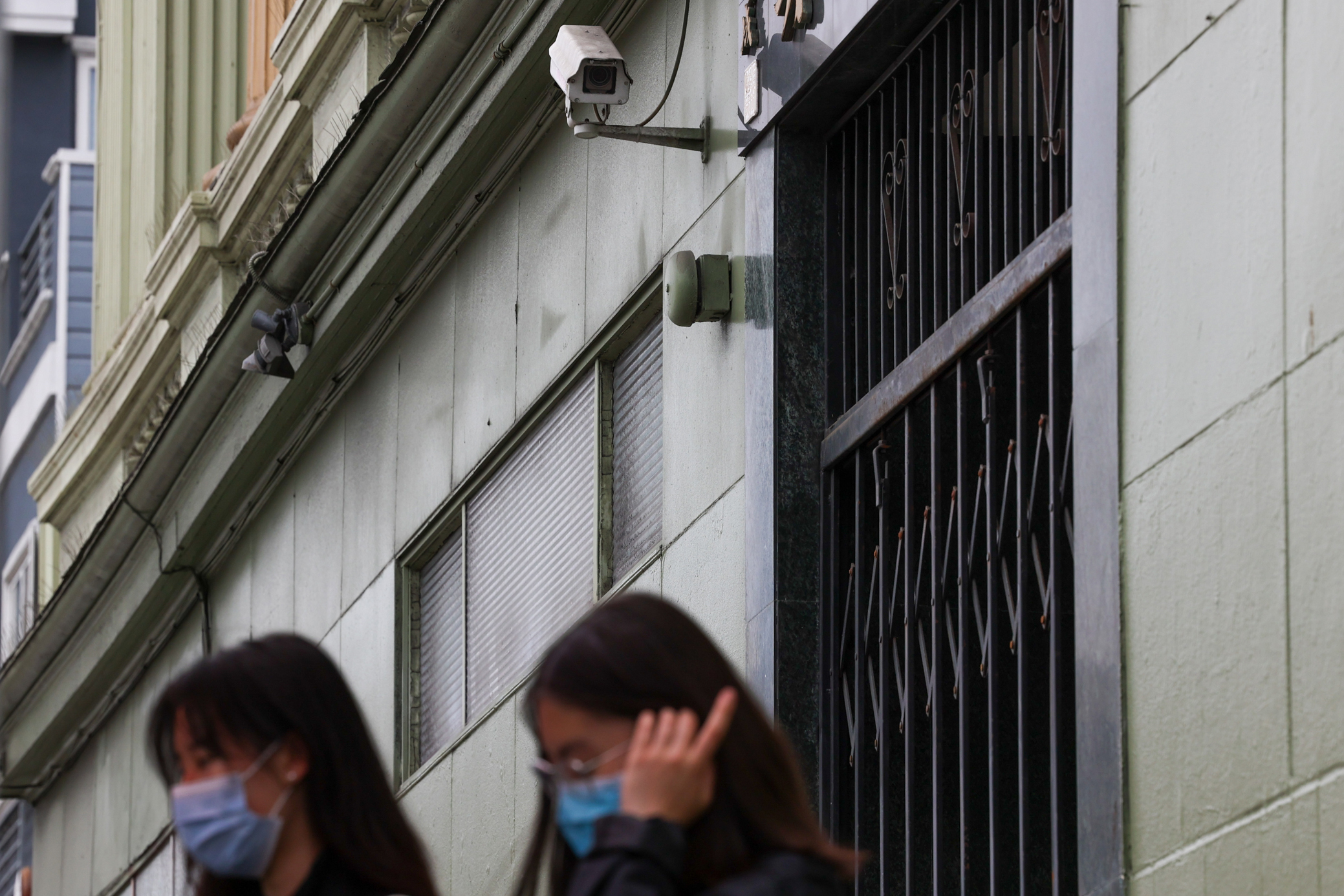Two members of the civilian body charged with holding San Francisco police accountable are jumping into the hotly contested debate over police surveillance powers, asking the Board of Supervisors to delay a vote on a proposal that would expand officers’ ability to use live video monitoring.
Police Commision Vice President Cindy Elias and Commissioner Kevin Benedicto sent a letter to the board on Thursday asking for more time to review the proposal. They complained that the Police Commission, which is tasked with setting policy for the police force, was not asked for input on the proposal.
“Given that the Proposed Policy will have major impacts and ramifications on the Department’s policy, the Commission—as the policy and oversight body of the Department—should have been consulted,” Elias and Benedicto wrote.
Breed’s proposal would allow officers to temporarily monitor live surveillance camera feeds under a broader set of circumstances than is currently allowed, including during investigations into active misdemeanor or felony crimes.
The board’s Rules Committee is slated to take an already long-delayed vote on the proposal next Monday after returning from summer recess.
It’s not abnormal for police commissioners like Elias and Benedicto, who are appointed by the board rather than Breed, to challenge mayoral prerogatives.
In response to the letter, Breed’s spokesperson Jeff Cretan fired back at the commissioners for the “last minute” intervention.
“There was ample opportunity to engage on this issue early,” Cretan said. “A lot of work has gone into this … Our hope is to move forward.”
Breed first made an issue out of police access to live surveillance last December after a series of brazen retail thefts struck Union Square.
She argued that a local law requiring agencies to get approval from the Board of Supervisors before acquiring new surveillance technologies essentially barred the police from using cameras to interrupt crime in real time.
At the time, police were facing a lawsuit for watching a camera feed from a merchant group in Union Square as a day of protests over the police killing of George Floyd in 2020 gave way to a night of looting in the area.
The ACLU of Northern California and Electronic Frontier Foundation argued that the usage violated the surveillance technology law. A judge ruled against them, but the groups have since filed an appeal.
Supervisor Aaron Peskin, who authored the existing law, has argued that police could already have the authority to live-monitor cameras, so long as they submitted a proposal outlining their usage to the board for approval.
But Breed wanted to go further, and in the end the two agreed to settle their differences through the legislative process, resulting in the current proposal.
It would allow police to watch live feeds for 24 hour periods during large scale events where there were public safety concerns, during emergencies involving the threat of death or serious physical injury or as part of investigations into active crimes. The proposal would sunset after one year.
Police Chief Bill Scott has argued that the proposal would allow his officers to combat drug dealing and gun violence by monitoring problem areas. District Attorney Brooke Jenkins threw her weight behind the proposal in one of her first acts in office after Breed appointed her to replace Chesa Boudin.
But the proposal has raised privacy and civil liberties concerns from advocates and the Public Defender’s Office, which does not support the current version of the proposal and is also calling for a delay.
Reached by phone, Benedicto said he was concerned about various provisions in the policy being too “vague and unclear,” including the one allowing the police to live monitor cameras during investigations.
“It’s such a significant expansion that I’d want to see more clear guidelines, clearer safeguards and more evidence that this would work,” he said.
The proposal will be heard Monday at 10 a.m. by the Rules Committee.
